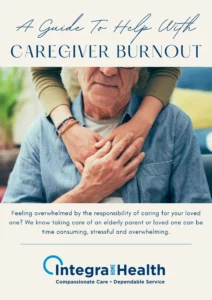Managing Caregiver Stress: Tips and Strategies
If you’re a caregiver for your parents and your children, you know you’ve got stress. You’re constantly torn between your parents and your children, and your spouse sometimes has to pick up the slack. However, you’re the one who’s holding the short straw in your hand while everyone tells you to relax.
Feeling Overwhelmed? Try These Strategies
Aagh! Sometimes, you just want to scream!
Feel better?
Now, try some tried-and-true suggestions for relieving caregiver stress:
- Accept help. Ask your siblings. Instead of mowing your parents’ or your own lawn, hire someone. Do the same for cooking dinner or shopping.
- Prioritize. You are human and can only do so much. Do the most important things first.
- Set realistic goals. Your kids may think you’re Superwoman, but you can’t do it all. Assess the ways you can help your parents, and have someone else do the rest.
- Get connected. Find resources in your community, such as a local Council on Aging or the Massachusetts Family Caregiver Support Program or the Family Caregiver Alliance.
- Join a support group. Yes, even with your nonexistent free time, join a support group, because you have to take care of you or you won’t be able to take care of anyone. A support group also gives you advice and help that will make taking care of your parent easier. If there’s none near, try a Facebook caregiver support group such as Caregiver Stress.
- Get social support from family and friends. Set aside some time daily to walk and chat with a friend. Schedule a weekly dinner with your spouse to talk over the week.
- Maintain your health. Again, if you don’t take care of you, you can’t take care of anyone else. Walk with your parent to receive the proven benefits of exercise. Go to the gym with your spouse. Cook healthy meals for the family. And make sure you get sufficient sleep!
- Use your doctor as a resource. Your doctor has information that can help you stay healthy and take care of everyone.
- Make sure you get the appreciation you need. Studies show that caregivers who feel appreciated are mentally and physically healthier than those who don’t.
- Take a vacation. Sometimes, you just need a break. So take a vacation – and give your parent a vacation – with respite care. Many Assisted Living communities offer short-term stays – respite care. Your parent will be treated just as if she lives at the community. She’ll receive medication reminders, help with daily activities, delicious and nutritious meals, and lots of socialization with friendly neighbors and staff.
Conclusion: Don’t Avoid Seeking Help
If you or your parent is experiencing new or unusual mental symptoms, perhaps it’s time to stop avoiding the issue and consider getting help.

